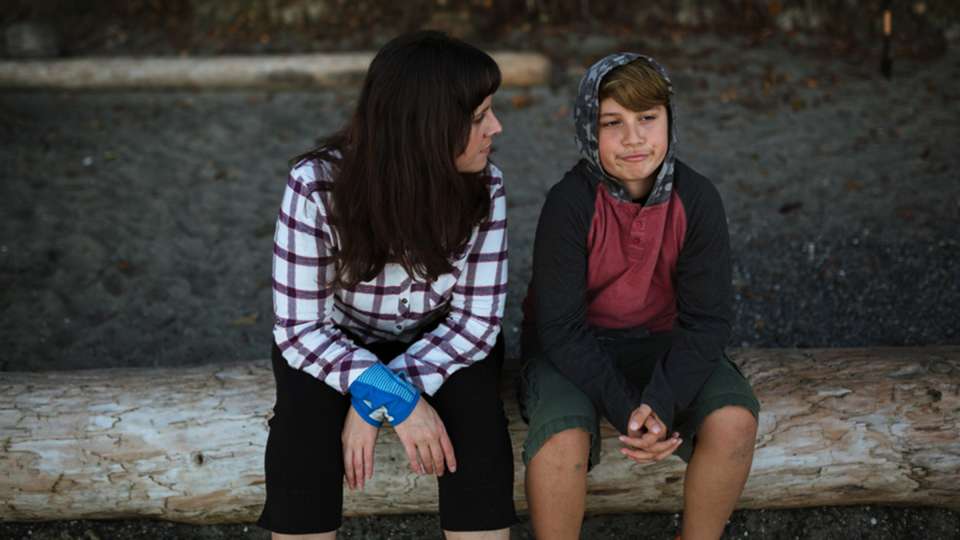
We are currently in the middle of a youth mental health crisis.
Since the beginning of the pandemic, mental health crises and emergency department visits among youth have increased.
Suicide risk is increasing among preteens, too. Nationwide, it is the second-leading cause of death among kids ages 10-14 and the third-leading cause of death among older teenagers.
It was a problem even before the pandemic, with a 2018 Washington State Department of Health survey finding that 20% of eighth graders and more than 20% of tenth graders considered suicide.
These are grim numbers, and it’s painful to think your kids could be suffering in this way. But there’s one simple yet powerful strategy for preventing the worst from happening and helping support youth when they’re struggling: talking with them.
Why you need to talk with your kids about mental health
Talking with youth about their mental health is vital to keeping them safe. Contrary to popular belief, bringing up serious topics like mental illness or suicide will not put ideas in your kid’s head — instead, it will show them that it is safe to confide in you.
When discussing any sensitive subject with your kids, it’s important to use active listening, says Jessica Jenness, a clinical child psychologist and assistant professor in the Department of Psychiatry and Behavioral Sciences at the University of Washington School of Medicine.
“Instead of listening to think of the ‘best response’ or ways to fix a problem, active listening means trying to better understand your child’s perspective,” she says.
Even though it’s important, it can be incredibly difficult to talk about serious mental health concerns with the kids and teens in your life. Because of that, Jenness has examples of how to respond in specific scenarios to help you feel more empowered to start a conversation.
What to say if your child won’t talk
It’s hard to listen if your kid or teen won’t talk much at all. In this case, it can help to think about why this might be.
Have you tried to fix their problems for them in the past so they may not want to confide in you? If that’s the case, try saying something like this: “I know that I've jumped in with advice a lot in the past and that hasn’t been helpful. Right now, I’m here to only listen and understand more about what’s bothering you. I promise I’ll only give my feedback if you want it afterward.”
If they aren’t forthcoming but you have an idea of what is bothering them, suggest it. Say, “I wonder if you don’t want to talk because of x,” then see how they respond. Offering a suggestion shows you care and are paying attention but are still asking them to clarify how they feel.
In some cases, if your communication suffers because you don’t get along, taking steps to remedy the relationship and connect on a more basic level may be necessary.
“This could look like 10 minutes a day or 15 to 20 minutes a few days a week where you engage in activities or conversations that your child prefers. Be sure to focus on strengths and what’s going on versus giving corrections or teaching, ignore minor misbehaviors and follow their lead,” Jenness says. “As connection and relationship quality improves, we oftentimes see children or teens are more willing to share information and communicate.”
What to say if your child doesn’t know how to express themselves
In this situation, which often happens with younger kids, Jenness recommends offering kids several choices of what could be happening or what they could be feeling and see which they respond to.
Example of what to say: “Wow, so I’m hearing that Justin called you a name and then you yelled back at him. I could see that making you feel angry ... or maybe confused or lonely because he’s been your good friend in the past. Do you think that’s what was going on?”
What to say if you think your child is afraid of getting in trouble
Maybe you caught them sneaking out, coming home late or doing something they aren’t allowed to do. Maybe they’ve been hanging around another kid who does those things and you’re worried. Or maybe they aren’t afraid of getting in trouble but are afraid of what getting help might look like.
Regardless, acknowledge to them that you understand their hesitation but that your goal is to work through the issue with them.
Example of what to say: “I’m wondering if you’re struggling to talk because you're worried about getting in trouble or about what might happen next. That makes sense. My goal is to listen and work together with you so you’re not alone in managing this problem.”
What to say if your child’s mental health is poor
The first step is identifying if your kid or teen is likely struggling with a mental health issue rather than a typical growing-up issue. This can be hard with teenagers especially, as mood swings are a normal part of puberty.
Signs of poor mental health in kids and teens include:
- Significant behavior changes that impact their ability to do the things they need to do
- Trouble at school, such as not wanting to go or not passing classes
- Regularly fighting with friends, family or teachers
- Avoiding activities they previously enjoyed
- Major changes in sleep or appetite
- Spending most of their time alone or isolated
- Difficulty completing everyday tasks like chores
If you notice any of these signs, it’s important to try to talk with them or encourage them to talk with another trusted adult they feel comfortable confiding in, such as a teacher, counselor or coach.
Be prepared that they may not want to talk about it at first. Let them know that that’s OK and you’re there if they want to talk in the future.
If they won’t confide in you for a while and you’re noticing they are still struggling, or if you’ve already talked about it but that hasn’t helped, talk with their doctor or school counselor or seek a referral for a mental health specialist.
Example of what to say: “I’ve noticed there'’s been a lot on your plate at school lately and it’s been hard to want to go to school every day. I can imagine how stressful it could be to have missing assignments and not want to see your teachers in case they bring it up. I’d love to talk more about this to see if we can brainstorm some ideas to help you get back on track at school.”
What to say if you think your child has suicidal thoughts
First, let’s make one thing clear: Asking your kid or teen if they have felt suicidal will not put the idea in their head. Simply talking about suicide doesn’t make someone more likely to attempt it.
Approach the topic calmly and factually, making sure to let them know that you are there to help them get the help they need. If they tell you they have been thinking about suicide, contact their primary care provider or a mental health specialist right away.
Example of what to say: “I can see how hard things have been lately. I know sometimes when things are really stressful for people, our minds can start thinking things like, ‘It’d be easier if I weren’t alive.’ Have you had any thoughts like that come up lately?”
Resources for parents and caregivers
- Call the national 988 Suicide & Crisis Lifeline at 988 or text TALK to 741741.
- Learn from the American Foundation for Suicide Prevention about how to talk with teens about suicide.
- Learn how home safety and safe gun storage impact suicide prevention.
- Get help for LGBTQ+ youth struggling with mental health issues.
- Whether you’re in King County or somewhere else in Washington state, access suicide prevention resources from Forefront .
- Access a list of youth mental health crisis lines compiled by Seattle Children’s .
- Learn home safety tips to help protect your kids from self-harm.

 Healthy ideas for your inbox
Healthy ideas for your inbox





